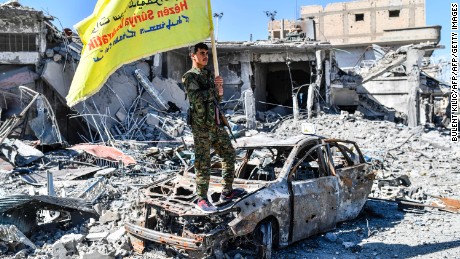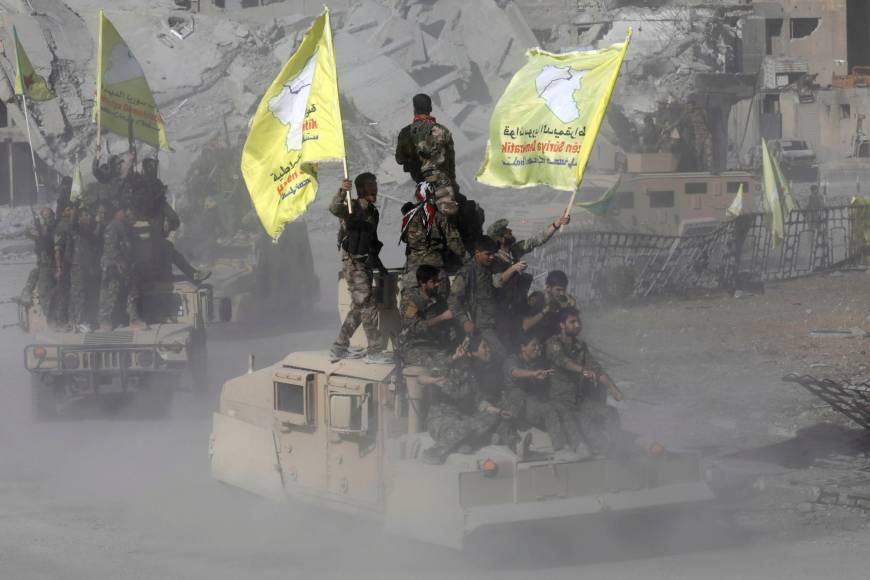ISIS on the Ropes
November 8, 2017
Last month, on October 17th, US-backed forces captured the northern Syrian city of Raqqa, which has been the long declared capital of the Islamic state.
The citizens broke out into celebration, for they have been living under strict rule where the littlest offense could result in death by public execution. With the fall of Raqqa, ISIS has lost two of their most important cities in their self-declared caliphate in the past three months. They lost Mosul, Iraq, in July and now hold a fraction of their previously occupied territory.
Raqqa was a massive center for ISIS media and propaganda. Since the loss, multiple ISIS radio stations have not been broadcasting and a couple of their magazines have yet to put out any new issues.
However, the difference between fighting another country and fighting terrorists is terrorists do not need a large mass of land to accomplish their goal. As long as ISIS can get their message out to the world, they are bound to get to someone. They can expanded without rolling tanks into cities or staging mass invasions. This is what worries most is that you can never really kill off a terrorist organization.
History teacher Daniel Boyle said, ¨My fear is organizations like this don’t need physical capitals. Especially in the day and age when technology allows them to reach and recruit wherever they are in the world.”
Today is much different then they days of the Mongols or the Crusades. Groups no longer need to control territory to have power. Boyle says, “Does it really matter? Does it really matter that they don’t have a place to stick a flag in the ground and say, ‘This belongs to us’. I think they are the kind of group that may do better now that they don’t need to spend resources defending a capital.”
There have been multiple cases in which US citizens have joined ISIS because they are influenced by the media they see on the internet, which is exactly what makes ISIS and terrorist organizations like them so dangerous.
This means that it becomes hard to combat tactics such as these. History and AP Government teacher Timothy Coyle, ¨I don’t think it is an excuse not to go for the top. What I worry about is if we only do that, if we only take out tops and we only do the muscular stuff, the sort of hard power approach to combatting terrorism and we don’t use our soft power, our diplomatic power, we won’t be using our most effective tool in the fight… I think that those kind of soft power approaches have as, if not more so, the centerpiece of our counterterrorism efforts.”
Terrorism is something that has changed the way we fight our battles and how we act overseas. We now operate militarily in other countries for our own national security. It changes how we operate on all levels both in a military sense and in a diplomatic sense. In the future, we will have to decide which path to take, whether it be through diplomacy or through our military. This question will be the center of our foreign affairs and something that we as the next generation will have to figure out.
Senior Cameron Wiley, who takes Honors Political Science, said, “We kill one and another will step in with the same ideas and the same beliefs.”

A US-backed soldier waves a flag after capturing Raqqa (CNN photo)



